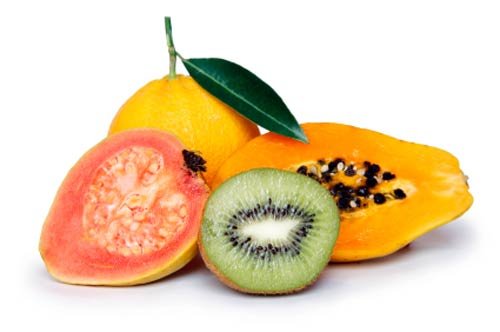
In the 1700s, sailors who sucked on lime on their sea trip were noted to not develop scurvy during their months without fresh vegetables and fruits. Thus came the discovery of vitamin C.
What does it do for me?
Helps make collagen and keep skin nice and supple
Helps with many bodily functions at the cellular level
Acts as an antioxidant, which may help reduce inflammation in the body
How much is enough?
90 mg/day (males); 75 mg/day (females)
To help you put it in context, a medium orange has about 70 mg of vitamin C.
What happens if I have too much?
There are no serious effects to taking megadoses of vitamin C (> 2000 mg/day) because it is water-soluble; the excess gets flushed out with your waste. The only exception would be if you have any kind of kidney disease, since now the damaged kidneys may not be able to process the vitamin C as well, increasing chances for kidney stones. There are, however, side effects to large doses of vitamin C, including diarrhea, nausea, vomiting, headache, and fatigue.
What happens if I don’t have enough?
Bleeding gums/other mucous membranes
I want some. Where?
Fruits: kiwi, persimmon, strawberry, papaya, citrus, melon, cranberry, tomato, blueberry
Vegetables: broccoli, Brussels sprouts, kale, cauliflower, spinach
Other Tidbits:
1. Smokers with vitamin C deficiency are at higher risk for lung diseases than smokers with adequate vitamin C.
2. Despite common belief, vitamin C has really not been scientifically shown to effectively reduce chances of catching the cold or shortening duration. Sorry, but that orange juice or Airborne you so faithfully buy may not be as useful as they claim to be!
No comments:
Post a Comment